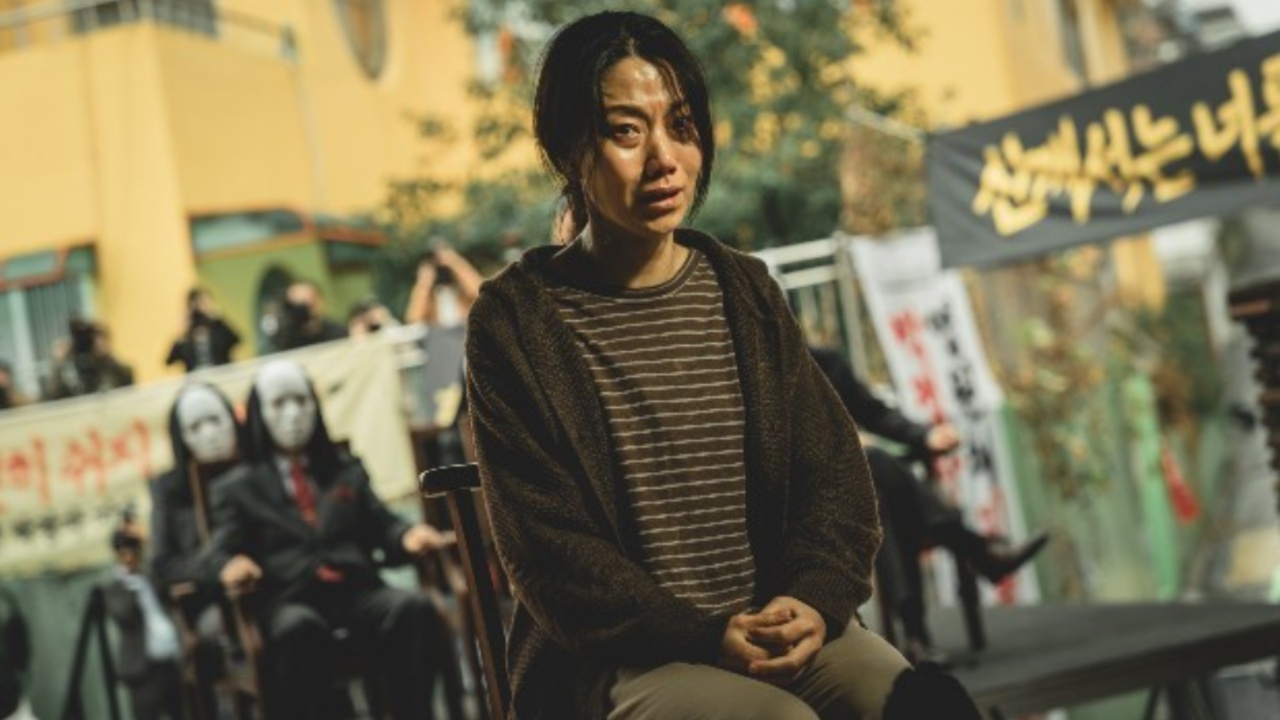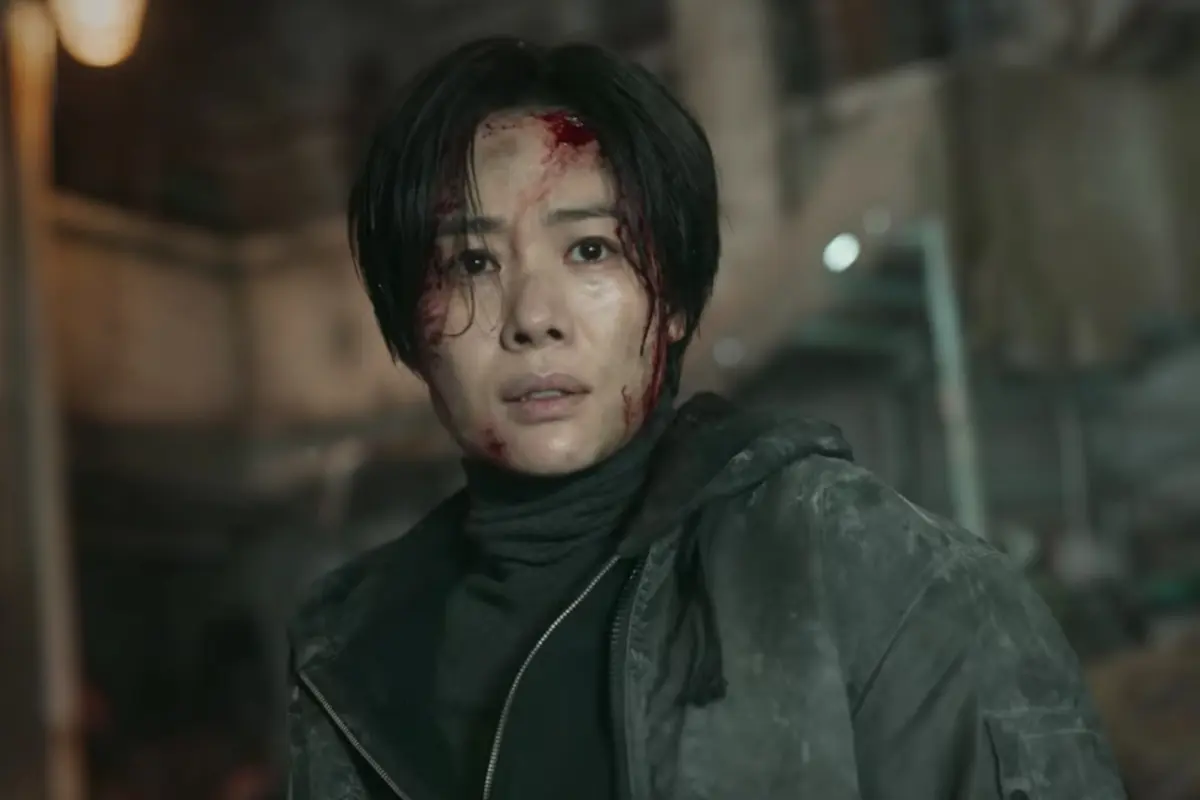Netflix’s Hellbound delivers a tense and unpredictable conclusion in its six-episode first season. Set in Seoul, the final episode balances high-intensity horror with moments of hope, leaving fans satisfied yet curious about the potential second season. The finale showcases both the human struggle against supernatural forces and the moral questions surrounding belief, power, and protection.
In the climactic episode, Sohyun initially contemplates giving up her newborn to the demon-monsters. At the last moment, she defies fate, shielding her baby, Toughie, from the creatures’ attack. With the help of her husband Youngjae and the lawyer Min Hyejin, they fends off the monsters, demonstrating that resistance is possible, even against overwhelming supernatural forces. Though they sacrifice themselves, Toughie survives, cementing her symbolic resilience.
Lee Dongwook, previously a sinister figure in the Arrowhead broadcasts, emerges as a self-proclaimed messiah in the finale. Believing God has assigned him a divine mission, he attempts to assert his authority over the newborn Toughie. Dongwook’s fanaticism drives him to violence, culminating in a confrontation with Hyejin, who challenges both his beliefs and his control over the situation. The demons ultimately intervene, ensuring that his plans fail.
Toughie’s Survival Challenges New Truth, Highlighting Human Agency Over Supernatural Religious Control
The finale exposes the fragility of the New Truth Society’s power. Witnessing Toughie’s survival, the public begins questioning society’s doctrines, particularly the notion that a newborn could commit sin. The crowd’s growing dissent, coupled with Hyejin’s decisive actions, undermines the authoritarian control of the deacons, signaling a shift in societal perception and challenging the unquestioned dominance of religious fanaticism.

Hyejin’s escape with Toughie underscores the series’ central theme: human agency in a world dominated by supernatural fear. Bystanders and allies aid their flight, illustrating that ordinary humans can assert justice and protect one another. The narrative emphasizes that while divine forces may exist, humanity is responsible for creating ethical systems that safeguard the innocent and hold the powerful accountable.
Hellbound Raises Unanswered Questions About Death, Resurrection, and the Limits of Belief
Hellbound leaves the fate of those who die in demonstrations intentionally ambiguous. The series refrains from confirming whether victims go to hell or experience another afterlife, maintaining suspense and philosophical depth. This uncertainty mirrors real-life questions about death and morality, reinforcing the show’s thematic exploration of belief, fear, and accountability.
The season ends with a shocking development: Park Jungja, previously killed by the supernatural entities, is resurrected at a New Truth sacred site. Her revival hints at a potential mechanism for understanding life and death in the series’ universe. This moment not only teases emotional reunions but also raises questions about the rules governing supernatural intervention and the consequences of defying divine decrees.
The finale leaves viewers with numerous unanswered questions: Will other victims return? How will society react to the resurrection of Park Jungja? Will Chairman Jeong and the New Truth leadership regain influence, or has their power been irreversibly challenged? These unresolved threads set the stage for a second season, promising further exploration of morality, belief, and resistance against authoritarian and supernatural forces.



